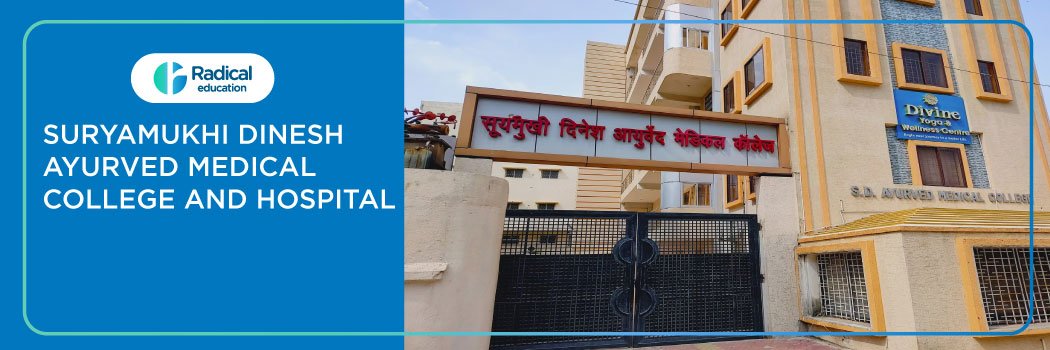

What is MS: Eligibility Criteria, Specializations & Career Opportunities 2025
Introduction to MS
The Master of Surgery is popularly known as the MS which is a postgraduate program in the medical stream. It is a three-year-long postgraduate course specially made for the candidates who have comprehensive skills and knowledge about surgical training.
MS course includes different specialization courses related to human anatomy:
- Learning about common diseases and how to treat them with surgery
- Developing the skills to perform a range of surgical procedures
- Gaining knowledge of surgical techniques and literature
- Learning how to critically evaluate research

Reasons to Study the Master of Surgery
- This course is specially designed for those who want to become a surgeon and want to build a career in this field. If the aspirant wants to build a career as a plastic surgeon, vascular surgeon, neonatal surgeon, researcher, ophthalmologist, or many more
- A Master of Surgery degree from a reputable institution can enhance your credentials internationally, making it easier to pursue fellowships or surgical practice abroad.
- It will give both personal satisfaction and professional recognition.
- The program provides hands-on training, exposure to complex cases, and mentorship from experienced surgeons, helping you become a more competent and confident surgeon.
- An MS can open way better job opportunities, higher salaries, and leadership roles in hospitals, academic institutions, and research centers.
- It also allows one to specialize in a particular surgical field, like general surgery, orthopedics, or neurosurgery.
Eligibility Criteria
- Candidates must be from an MCI-recognized medical college.
- Completion of a 1-year internship post-MBBS is a must.
- Following Minimum Marks are required :
- 50% for the General category
- 40% for SC/ST/OBC categories.
- Minimum percentage may vary, so always check the official website of the institution.
- should also hold a provisional or permanent registration with MCI.
Admission
- The candidates who want to get admission to MS Courses can apply by visiting the official websites.
- The admission for this program is usually entranced-based and merit-based.
- The minimum age limit of the aspirant for applying for this MS course should not exceed more than 35 years.
Syllabus for Master of Surgery
| Component | Details |
| Duration | 3 Years |
| Key Components | Theoretical KnowledgeClinical SkillsThesis SkillsTraining in Research Methodology |
| Assessment | Written and Practical ExamThesis Submission |
| Final Result | Based on the written exam, practical exam, and thesis paper. |
Fee Structure
- Master of Surgery (MS) fees in India vary significantly based on the type of institution, i.e, government vs. private, and the specific college or university.
- Government colleges generally have much lower tuition fees compared to private institutions.
- Fees vary considerably between different medical colleges and universities, even within the same category
- In Government Institutions fee ranges from ₹1150 to ₹850,000 per year.
- In Private Institutions fee is between ₹16 Lakhs to ₹50 Lakhs per annum in state private colleges, and
- ₹18 Lakhs to ₹40 Lakhs per annum in deemed universities.
- For NRI/Management Quota, it is from ₹181,910 to ₹77,28,000 per year.
- Other Costs besides tuition fees, students may have to pay for hostel fees, mess charges, and other miscellaneous expenses.
Top Master of Surgery Colleges
- Aligarh Muslim University, Aligarh
- AIIMS, Delhi
- Maulana Azad Medical College, Delhi
- AFMC, Pune
- KGMU, Lucknow
- Madras Medical College, Chennai
- BJMC, Pune
- BJMC, Ahmedabad
- Lady Hardinge Medical College, Delhi
Ph.D. After Master of Surgery
After completing the degree, i.e, Master of Surgery course, the candidates also have the option to continue higher studies and can pursue different super-specialist courses and Ph.D. courses. It is a three-year-long course. Candidates who have a higher degree are the best paid in this profession.
Master of Surgery Jobs & Placements
A person with an MS Degree has a wide scope of job opportunities both in India and foreign countries. With a Master of Surgery, they can also opt following career options-
- Government Hospitals
- Private Hospitals
- Starting their private practice
- Teaching jobs
- Join the Army/Air Force, etc, as a Surgeon
- Researcher at research institutes
- Bio-chemical Companies
There are various job profiles available for a Master of Surgery Degree holder, like
- They can work as a surgeon at private and government hospitals Plastic Surgeon, Neonatal Surgeon, Vascular Surgeon, General Surgeon, and many more.
- Can work as a Researcher at different research institutions
- can work at biochemical companies.
- work in Consultancy Services in various hospitals.
- also work for different Non-profit Organisations
Conclusion
In conclusion, it can be said that A Master of Surgery degree is an essential step towards becoming a highly skilled surgeon. By pursuing this postgraduate qualification, aspiring surgeons can gain access to advanced knowledge, hands-on training, and specialized expertise in their chosen surgical fields. The MS degree not only broadens career opportunities but also strengthens professional recognition by allowing surgeons to make a significant impact on the lives of their patients and contribute to the advancement of surgical science.

FAQs
What are the eligibility criteria for pursuing an MS degree?
The eligibility criteria may vary depending on the country and institution. In general, candidates are required to have completed a Bachelor of Medicine, Bachelor of Surgery (MBBS) degree or an equivalent medical qualification. Some programs may also require candidates to have completed a certain period of clinical experience or pass an entrance examination.
How long does it take to complete an MS degree?
The duration of an MS degree program varies, but it typically takes two to three years to complete. The program consists of both theoretical coursework and hands-on clinical training.
What are the specialization options available in the MS degree?
The MS degree offers various specialization options, including general surgery, orthopedic surgery, cardiothoracic surgery, neurosurgery, plastic and reconstructive surgery, and more. Students can choose their specialization based on their interests and career goals.





